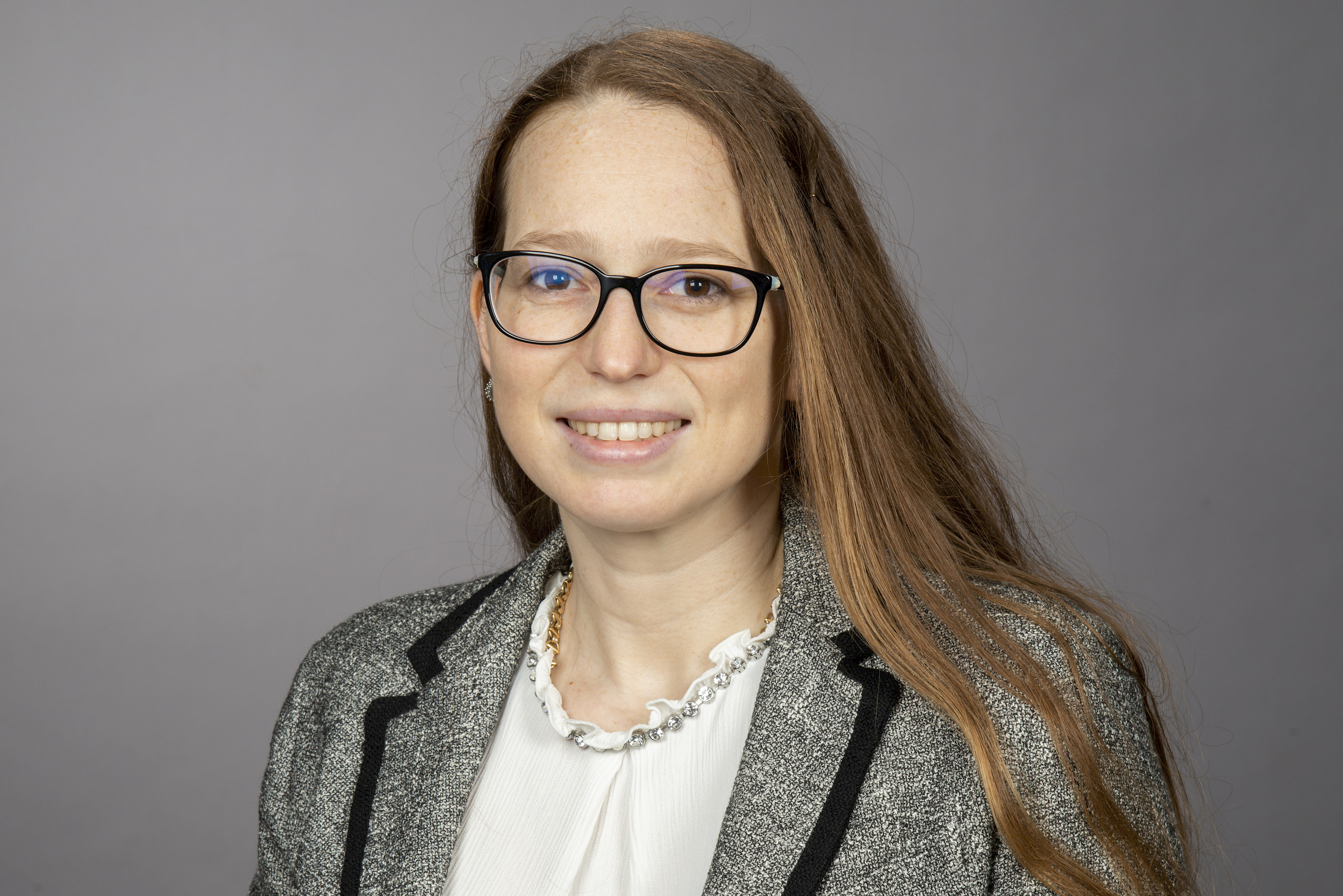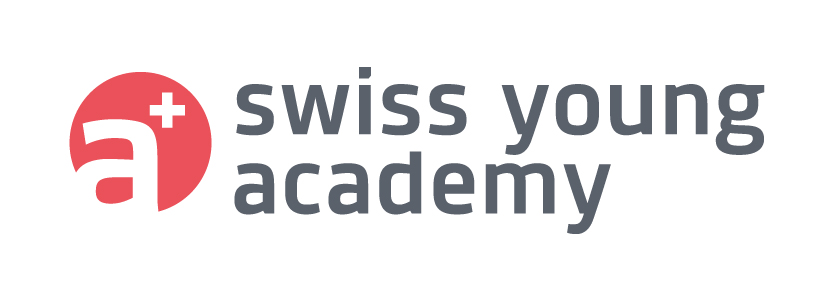Networking science.
Driven by the fascination of life
Portrait I Astrid Tomczak

Sometimes life can be quite challenging. And when one looks back on those turbulent times, one wonders how one overcame them. Or, as Elisa Araldi puts it: “The timing was pretty crazy, everything happened at once”. In 2022, she became pregnant, obtained her first faculty position at the University of Mainz and received a large project grant. Her daughter was born in February 2023 and a few months later she moved to Italy with her husband and child, where she was able to take over a research group. “My whole life changed overnight,” she said. “I would never have imagined that I could be so strong.” So, now she’s sitting in on the video call on a summer’s day in June and looks wide awake – although she actually only sleeps all through the night when she’s alone at a conference. “Somehow I believed I could do it,” she says. “Not always. But in the back of my mind, I always knew that I belonged in this academic world, that I am a researcher.”
“I would never have imagined that I could be so strong.”
This conviction is not necessarily obvious. Elisa Araldi is the first academic in her family. Her mother worked for the Post Office and her father for the railways. Elisa describes herself as a curious child, who wanted to get to the bottom of things. “Life is so fascinating,” she says. “Nobody can say exactly how it originated. We pretend we know, but the truth is that the way in which it evolved and how it behaves when it’s disrupted is simply beyond our understanding.” She attended a science high school. At some point, the pupil read a news item in a weekly magazine about a scientific discovery. The source of the news: the scientific journal “nature”. So, Elisa asked her mother to get her a copy of this journal. The mother ran to the newsagents – where she may have been the first customer ever to ask for this exclusive and expensive science magazine. It had to be ordered first. Elisa has to laugh at the recollection. “I then always received issues that were already a few months old.” She was 15 or 16 at the time. “I tried very hard to improve my English so that I could understand what was in it. But I wasn’t very successful.” But instead of giving up in frustration, Elisa Araldi continued undeterred on her career path. She completed an exchange year in the USA and took part in science Olympiads there. “I think I won a gold medal in genetics, but I don’t remember exactly,” she says. “In any case, I did quite well.”
“Life is so fascinating.”
After leaving school, she applied for a place at the Scuola Normale Superiore in Pisa. It’s the elite university in Italy, so it’s an honour just to be admitted. “All my friends knew I had been admitted to study medicine,” she says. “But I opted for biology instead.” It’s easy to imagine that Elisa’s mother wasn’t very pleased – even though she naturally didn’t want to put any obstacles in her daughter’s way. “She said to me: ‘Listen, I’ve spent so much money on this magazine, so please find yourself a stable job. Become a doctor, then the problem will be solved’.” Elisa Araldi tells the story with a slightly humorous undertone, because she knew: “I want to become a researcher, I want to make discoveries. I saw these bizarre Nature Papers that I didn’t understand, but I also wanted to write them.” But, of course, she also realized she would have better job prospects as a doctor. Once she had completed her master’s degree, she re-applied for medicine at the elite university. She was admitted again, but opted for a doctorate. “Someone had died of cancer in my family and that had really affected me,” she says. “So, I wondered whether I should go into cancer research. But I found all these different cancers so randomly.” Instead, she turned her attention to metabolism: “Metabolism is so elegant,” she says. “Physiology and metabolism are beautiful in their own way because it's all a balance. If it tips to one side, you have diabetes, if it tips to the other, you have something else. But then we can try to restore the balance again.”
“I want to become a researcher, I want to make discoveries."
Finding this balance in life is not easy either when a young woman embarks on the route that Elisa Araldi had chosen. A route that is marked by more uncertainty than certainty. For her, the Swiss Young Academy is therefore much more than just a prestigious membership. It’s an important resource in sometimes-turbulent times. “We come from different countries and from different disciplines, with completely different biographies. But we’re all in the same boat.” Thus, everyone struggles with similar challenges. Unstable job situations, constantly having job interviews and having to cope with questions about starting a family at the same time. “It was very helpful for me to talk to people who are in the same situation or who have already successfully overcome it,” says the 38-year-old.
"The Swiss Young Academy was very helpful for me to talk to people who are in the same situation or who have already successfully overcome it.”
In her research, she investigates which mechanisms contribute to the prevention or development of diseases – using laboratory experiments on the one hand and data on the other. “Our research could soon already have practical impacts on human health,” she says. For example, her group recently discovered that some drugs are less efficacious in people with a certain gene variant. “This knowledge can be used to develop more effective therapies. Personalized medicine.”
When you hear Elisa Araldi speak, you hear a woman who is passionate about her job and is prepared to overcome obstacles to do it. “Life is a challenge,” she says, “and when you’re ready for it, you fight. I don’t know whether this resilience is a gift or a muscle that can be trained.” Whether it’s innate or trained: Elisa Araldi has it, this resilience that has got her to where she is today. Somehow, it’s the place where her mother had always envisaged her. “I think it’s the right thing for me," says Elisa Araldi. "Today I teach medical students. So eventually, I’ve ended up in medicine after all."
Biography
Elisa Araldi (born 1985) grew up in Pavia, Lombardy and studied biology in Pisa. During her doctorate at the New York School of Medicine, she focussed on pathobiology and translational medicine. She then studied at Yale University of Medicine with a scholarship and at the Institute for Molecular Health Sciences of ETH Zurich before moving on to the University of Mainz. Today, she lives with her husband – a physicist – and her daughter in Parma, where she heads a research group. One of her great role models is Rita Levi-Montalcini, who, as a persecuted Jew during the Second World War, conducted research on chicken embryos in a hiding place and was awarded the Nobel Prize for Medicine and Neurophysiology in 1986 at the age of 77 for her discovery of endogenous growth factors responsible for cell growth. “I was greatly encouraged to see there are women who forge ahead with their research despite the biggest hurdles,” says Araldi. In her spare time, she enjoys going diving with her partner – or making various objects with a laser cutter. Her latest project: she wants to make a 3D picture book for her daughter.
